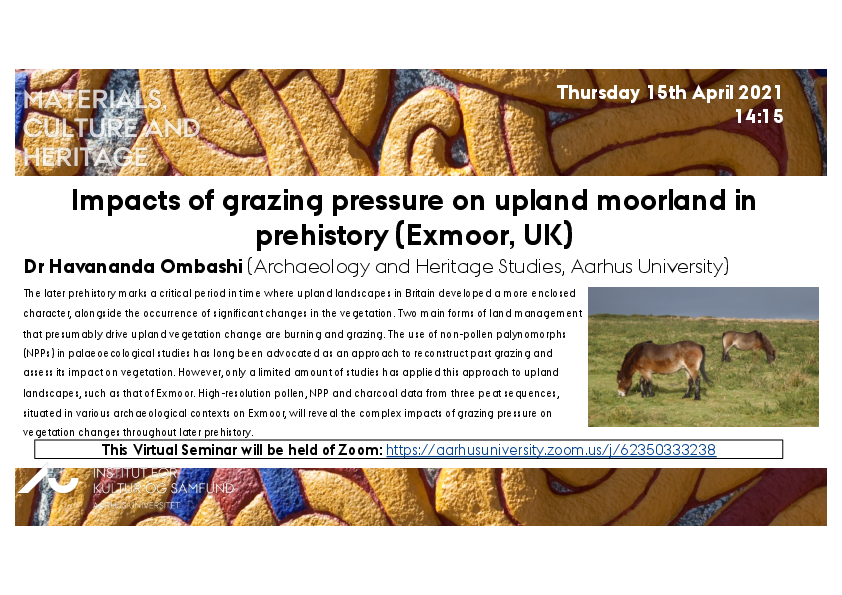Havananda Ombashi MCH presentation: Impacts of grazing pressure on upland moorland in prehistory

The later prehistory marks a critical period in time where upland landscapes in Britain developed a more enclosed character, alongside the occurrence of significant changes in the vegetation. Two main forms of land management that presumably drive upland vegetation change are burning and grazing. The use of non-pollen palynomorphs (NPPs) in palaeoecological studies has long been advocated as an approach to reconstruct past grazing and assess its impact on vegetation. However, only a limited amount of studies has applied this approach to upland landscapes, such as that of Exmoor. High-resolution pollen, NPP and charcoal data from three peat sequences, situated in various archaeological contexts on Exmoor, will reveal the complex impacts of grazing pressure on vegetation changes throughout later prehistory.
